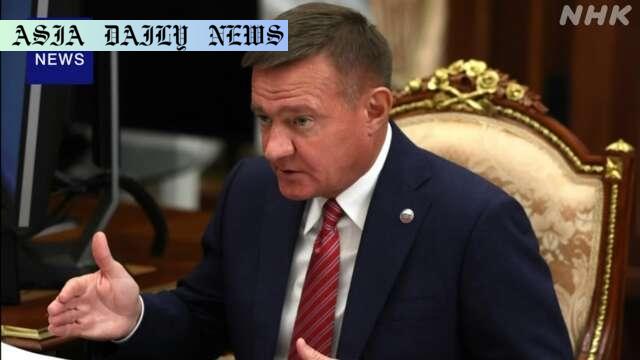Russian minister suicide – Roman Starovoit, dismissed by Vladimir Putin, found dead amidst embezzlement allegations.
Roman Starovoit found dead in private car following dismissal by Putin.
Suspected suicide linked to an alleged 1 billion ruble embezzlement case.
Starovoit was under investigation with ties to funds for Ukraine border defense.
His dismissal and death spark questions about Russia’s handling of corruption.

Former Russian Transport Minister’s Sudden Death and Its Context
The sudden death of Roman Starovoit, Russia’s former Transport Minister, has sparked questions across Russia and beyond. Found dead in his private car with a gunshot wound, the tragedy occurred just hours after his dismissal by President Vladimir Putin. Russian authorities are investigating the matter as a suspected suicide. However, the timing and circumstances surrounding his death have invited scrutiny, especially considering the wider allegations of corruption linked to Starovoit and his associates.
Roman Starovoit, who had also served as the governor of the Kursk region for five years, was recently implicated in an embezzlement scandal involving funds allocated for border defense projects. These projects were critical to securing the vulnerable Ukrainian border area and were reportedly under heightened scrutiny since the August cross-border attack by Ukrainian forces. Russian media indicates that Starovoit was allegedly involved in embezzling over 1 billion rubles, equivalent to $12.7 million USD.
Background of the Embezzlement Allegations
The embezzlement scandal that entangled Starovoit has been a growing point of contention for Russian officials. The misappropriated funds were intended for the development of infrastructure to bolster defenses along the Ukrainian border, a politically sensitive task given ongoing tensions in the region. Kommersant, a leading Russian newspaper, reported substantial evidence and testimony pointing to Starovoit’s involvement in the mismanagement of these funds. This is further compounded by arrests of several associates, including Starovoit’s gubernatorial successor, earlier this year.
While Starovoit’s dismissal by President Putin was sudden, the Kremlin has not offered official reasons for this decision. However, local media has speculated that the dismissal was a strategic move tied to the growing investigation and looming evidence of corruption. The death of Starovoit, whether by suicide or other circumstances, adds complexity to an already tangled case, potentially complicating further investigations.
The Geopolitical and Domestic Implications
Starovoit’s death not only raises personal and ethical questions, but also reflects broader issues within Russia’s political and bureaucratic systems. The alleged corruption involving funds aimed at bolstering national security is a matter of grave importance, considering the ongoing conflict with Ukraine and international attention on Russia’s governance. Accusations of such significance could undermine public confidence and present challenges to internal stability.
Furthermore, this tragic incident has larger implications for how Putin’s administration manages crises involving high-ranking officials. The Kremlin’s silence on key aspects of this case suggests a deliberate strategy to withhold details, potentially in an effort to manage public opinion or limit fallout. Observers are keenly watching how this case unfolds and whether it leads to greater transparency or further questions about accountability within Russian leadership circles.
A Political Scandal Under a Microscope
This unfolding situation is more than just a case of alleged suicide; it sheds light on the political undercurrents of a nation navigating scandals, conflicts, and leadership dilemmas. Starovoit’s case is emblematic of the challenges faced by modern Russia, where internal controversies often interlink with broader geopolitical tensions. The 1 billion ruble embezzlement scandal involving essential border defense projects reveals the precarious balance between leadership oversight and systemic corruption.
Authorities must undertake a thorough and transparent investigation to not only establish the facts behind Starovoit’s death but also address the financial and legal irregularities linked to his tenure. Failing to do so risks further erosion of public trust and could open the door to greater scrutiny of Russia’s highest offices.



Commentary
The Tragic Intersection of High Power and Accountability
The tragic death of Roman Starovoit represents a poignant intersection of power, politics, and personal vulnerability. In modern governance, especially within systems where accountability is inconsistent, officials often find themselves in precarious situations when accusations arise. Starovoit’s case offers a chilling look into the pressures faced by those in public office amidst allegations of corruption or misconduct.
Investigating Corruption and its Broader Implications
The allegations of embezzlement tied to border defense funds are not merely a legal issue but an ethical one that speaks to the priorities of Russian leadership. These funds were reportedly intended for projects critical to national security, yet mismanagement at this scale highlights systemic issues. Starovoit’s death, coupled with criminal investigations, raises difficult questions about the integrity of those responsible for such crucial undertakings.
The Need for Transparent Governance
Russia’s governance is under increased scrutiny, and incidents like this emphasize why transparent procedures are vital. The Kremlin’s lack of detailed comment on Starovoit’s dismissal and subsequent death creates room for speculation, which risks undermining trust in leadership. Public officials must act decisively to restore transparency and ensure corruption cases like this do not become a recurrent theme.
Humanizing the Legacy of Starovoit
While Starovoit’s death is enmeshed in scandal, it is essential to remember the personal cost of political controversies. Regardless of guilt or innocence, this incident reminds us of the complexities of leadership and the toll it can exact on individuals. As authorities move forward, they must also consider the human aspect of governance and corruption, balancing accountability with empathy for those caught in these difficult situations.